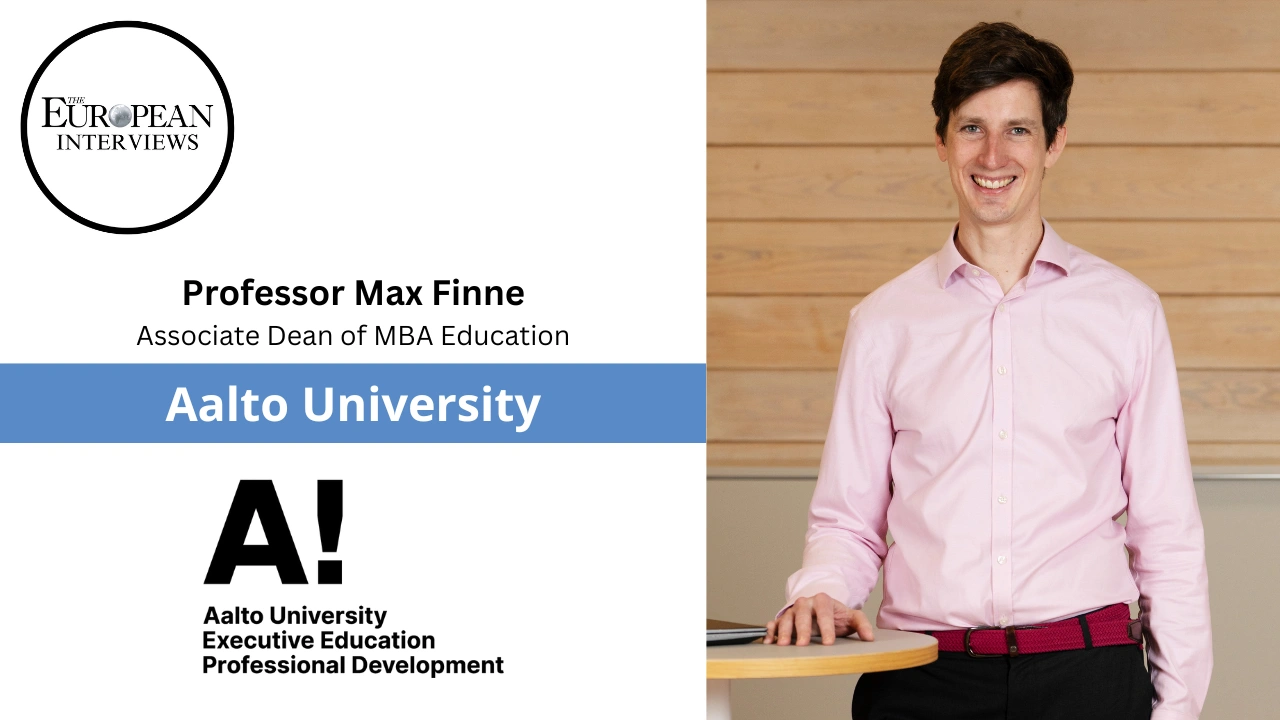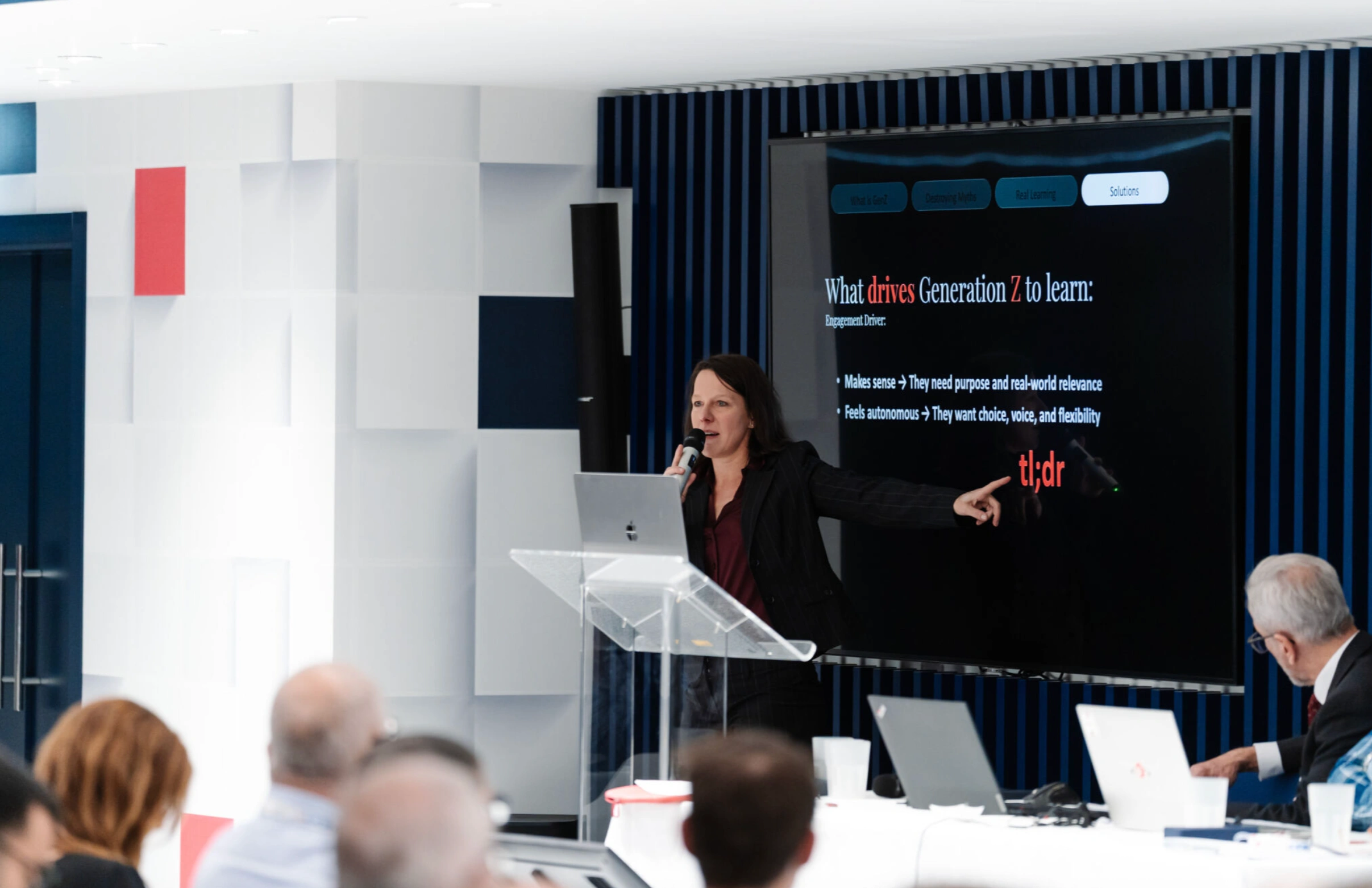New ways of creating value for executive education

John E. Kaye
- Published
- Executive Education, Home

Harald Hungenberg, Dean of Programs at ESMT Berlin outlines why intelligent blending of online and in-class learning is no longer the future – it has already become reality

2020 has been a disrupted year for executive education. The coronavirus pandemic first caused a halt to all educational activities and then forced business schools to move program delivery completely online or in blended format. These changes have resulted in huge investments going into hybrid classroom technology and other support for delivery.
Throughout the pandemic, the question of whether the crisis is indeed an interruption or disruption has been asked repeatedly. The answer is neither: It is acceleration. The coronavirus crisis has accelerated change not only within higher education, but also across many industries. It has transformed emerging trends into a new reality. Online executive education, for example, is definitely here to stay.
Executive education experts used to claim that there were activities and topics with little to no alternative to in-person exchange in order to guarantee a valuable learning experience for executives. However, 2020 has proven this wrong. Almost all benefits of executive education programs can be delivered through intelligent combinations of online and in-class learning. Intelligent blending is no longer the future – it has already become reality.
At ESMT Berlin, we believe that intelligent blending provides new opportunities to fulfill three fundamental requirements of executive education customers:
Transformational experience
To a large extent, content is a commodity. Learning and individual development – the personal transformation – stem from participants’ experience.
Experience comes from experiencing. Interactive formats, such as ESMT’s Virus Game – an escape game where teams have to interact in a virtual environment, generate a personal experience that initiates learnings well beyond the theoretical exchange. Experiential learning as reflected in the game allows participants to dive into a gamified application of virtual teamwork and collaboration by mastering a series of tasks. It represents a safe, trustful, and realistic way of learning and dealing with the subject matter – and it works in both face-to-face and virtual settings.
Experience also means exchange with other participants. Learning from the successes and failures of other managers as well as networking within the own firm or across different firms are highly valued opportunities provided by face-to-face programs. Customers expect to get the same value in a virtual setting. Peer exchange, group work, and social activities, like online wine tastings and pub quizzes, have been adjusted and applied to the digital sphere to re-create a comparable experience of interaction and networking.
Individualisation
Learning becomes more relevant the closer learning outcomes are tied to individual development needs and job requirements. Thus, the individualization of learning will grow.
Designing individual learning journeys with online and in-person components allows us to do this in an efficient way. In a blended program, those learning experiences that are relevant to all participants can be provided in on-site components. Smaller and specific online learning content, once developed, form a box of building blocks, the components of which can be pieced together according to individual needs. Specifically participant groups with heterogeneous knowledge can be prepared much better for a joint learning experience through, e.g., pre-program online elements that bring the knowledge of all participants to a comparable level. Post-program elements then serve to deepen the knowledge where job requirements call for special competencies. We even see an effective symbiosis between degree and executive education programs that allows for an individualization of life-long learning paths.
Impact
While companies have always been looking for impact, the crisis has also accelerated their need to measure it. For executive education providers, it is not sufficient to focus on participants’ satisfaction – the more urgent question is how a program impacts business. Does it deliver the required results? Does it have a positive return on investment?
As far as ROI is concerned, the shift to online delivery has created a unique opportunity. Live online sessions can be delivered to much bigger audiences, allowing for (if needed) sessions with up to several thousand people from all over the world in all possible time zones, without taking up too much of the participants’ time and with little to no travel expenses. Recorded content gives participants the autonomy and flexibility to learn at their own pace and internalize the content, thus providing greater impact.
Within customized projects, impact comes not just from the direct orientation on the client company’s goals, but also from behavioral changes. With the support of online modules – and the disappearance of the need to travel – programs or learning interventions are expanding over longer periods. They include various touch points and diverse interaction forms, thus, creating a learning journey with multiple follow-ups and debriefs with variable timeframes. Participants can evaluate the achievement of their learning targets repeatedly and can be surveyed in multiple ways regarding the application of the learning content.
We are convinced that the need for individual and company transformation through learning and development will remain. Experience, individualization, and impact will provide the added value that distinguishes excellent executive education providers from the rest. The coronavirus crisis has forced all executive education providers to adopt new forms of creating this value, and with intelligent blending, they have also been given a promising opportunity to do so.
About the author
Harald Hungenberg is the Dean of Programs at ESMT Berlin. Professor Hungenberg works as a consultant and lecturer for strategy, innovation and change management and teaches in management programs of leading companies. Professor Hungenberg has extensive experience working with both companies and executives and his research has been documented in more than 100 books and articles.
RECENT ARTICLES
-
 Hannu Tihinen on strategy, leadership, and the value of an EMBA
Hannu Tihinen on strategy, leadership, and the value of an EMBA -
 European MBAs adapt to AI as Aalto overhauls executive education
European MBAs adapt to AI as Aalto overhauls executive education -
 From dialogue to action: how emba X prepares leaders for a new era of responsible innovation
From dialogue to action: how emba X prepares leaders for a new era of responsible innovation -
 How Europe can learn faster: turning AI into safer, smarter adult training
How Europe can learn faster: turning AI into safer, smarter adult training -
 Aalto EE launches Aalto Tech EMBA to equip executives for digital transformation
Aalto EE launches Aalto Tech EMBA to equip executives for digital transformation -
 Supply chains are being remade. Leadership must be too
Supply chains are being remade. Leadership must be too -
 Why the real barrier to AI success sits in the boardroom
Why the real barrier to AI success sits in the boardroom -
 ETH Zurich and the University of St.Gallen redefine executive education with emba X, a new model of responsible leadership
ETH Zurich and the University of St.Gallen redefine executive education with emba X, a new model of responsible leadership -
 Why leadership is the strongest defence in South Africa’s schools
Why leadership is the strongest defence in South Africa’s schools -
 Porto Business School launches executive programme on AI strategy
Porto Business School launches executive programme on AI strategy -
 POLIMI Graduate School of Management strengthens global reputation in MBA and master’s rankings
POLIMI Graduate School of Management strengthens global reputation in MBA and master’s rankings -
 Trinity Business School strengthens standing in global MBA rankings
Trinity Business School strengthens standing in global MBA rankings -
 Meet the class of 2025… and their children. Why mid-life university learning is on the rise
Meet the class of 2025… and their children. Why mid-life university learning is on the rise -
 University of Michigan launches executive programme for chief data and AI officers
University of Michigan launches executive programme for chief data and AI officers -
 International education: A vision for global citizens
International education: A vision for global citizens -
 How to create lasting social change? Build a community
How to create lasting social change? Build a community -
 Tomorrow’s world needs Dyslexic Thinking
Tomorrow’s world needs Dyslexic Thinking -
 Why family therapy is the best investment you can ever make
Why family therapy is the best investment you can ever make -
 How EQ can give us the edge over AI
How EQ can give us the edge over AI -
 A true root and branch approach
A true root and branch approach -
 It's fine to say you're not ok
It's fine to say you're not ok -
 Are you willing to change with your organisation?
Are you willing to change with your organisation? -
 Emerging markets: Online learning for women unlocks economic potential
Emerging markets: Online learning for women unlocks economic potential -
 A programme of urgent importance
A programme of urgent importance -
 Why progress is not parity
Why progress is not parity



























